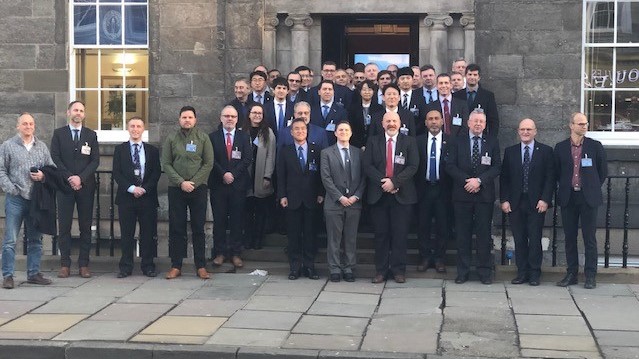
The International Association of Marine Aids to Navigation and Lighthouse Authorities (IALA) in association with the Northern Lighthouse Board organised a Workshop on the Future of Marine Radiobeacon DGPS/DGNSS, which was held in Edinburgh during the last week of January.
The IALA DGNSS beacon system was developed in the 90s, being deployed since then in many countries around the world. The system was adopted as the international maritime de facto standard for providing GNSS differential corrections. Currently, some countries are wondering what to do with their radiobeacon DGNSS service, either carrying on with the delivery of the service or discontinuing it.
That was the rationale behind the organization of this workshop, whose aim was to discuss and to develop guidance on the future of radiobeacon DGNSS, through knowledge sharing, defining the future requirements for PNT services and discussing the future of DGNSS. Rather than identifying a one-fits-all solution, the objective was to gather all the information concerning the different options, to allow each competent authority to choose the best approach for them.
Satellite-based augmentation systems were presented as a cost-efficient solution to complement DGNSS infrastructure. As described in IALA Guideline 1129, SBAS can be used by maritime authorities as a source of differential corrections to be re-transmitted by IALA beacons and/or AIS/VDES infrastructure. Besides, the SBAS signal-in-space can be used directly by the vessel, however, maritime authorities need to take into account several considerations as described in IALA Guideline 1152. It was also highlighted that the European Commission, the European GNSS Agency, the European Space Agency and the EGNOS Service Provider are working together on a specific Maritime Service based on EGNOS.
As a result of this workshop, the drafting of IALA Guidelines on the future of marine DGNSS radiobeacons started, with the objective of setting out the necessary background information that each authority may need to consider moving forward.
Almost 50 attendees from 22 different countries took part in this workshop, contributing to the interesting discussions held. Now, you have the chance to deepen in this topic, getting a closer look onto the different views presented through the report published in the IALA website.

